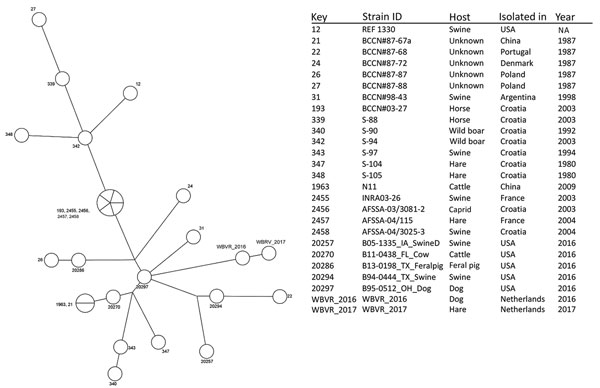Volume 24, Number 6—June 2018
Dispatch
Brucella suis Infection in Dog Fed Raw Meat, the Netherlands
Figure

Figure. Maximum parsimony analysis on MLVA-16 (multilocus variable-number tandem-repeat analysis) of genotypes from 2 recent Brucella suis biovar 1 isolates from the Netherlands (WBVR2016 from a dog and WBVR2017 from hare carcasses) in conjunction with B. suis biovar 1 strains of the highest similarity from a public database (http://microbesgenotyping.i2bc.paris-saclay.fr/) with 521 entries of B. suis. NA, not available.
1These senior authors contributed equally to this article.
Page created: May 17, 2018
Page updated: May 17, 2018
Page reviewed: May 17, 2018
The conclusions, findings, and opinions expressed by authors contributing to this journal do not necessarily reflect the official position of the U.S. Department of Health and Human Services, the Public Health Service, the Centers for Disease Control and Prevention, or the authors' affiliated institutions. Use of trade names is for identification only and does not imply endorsement by any of the groups named above.